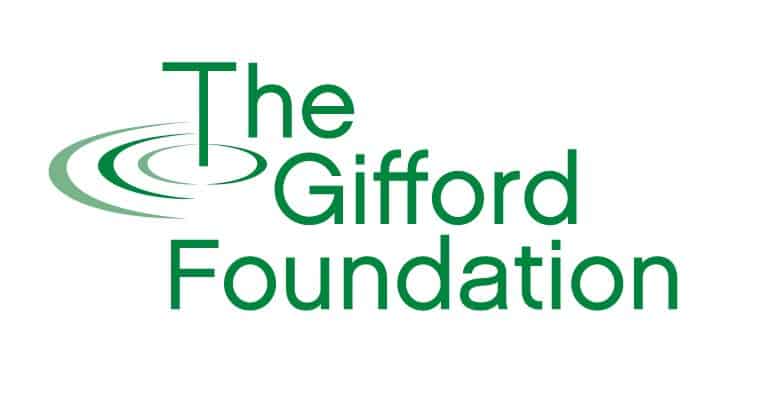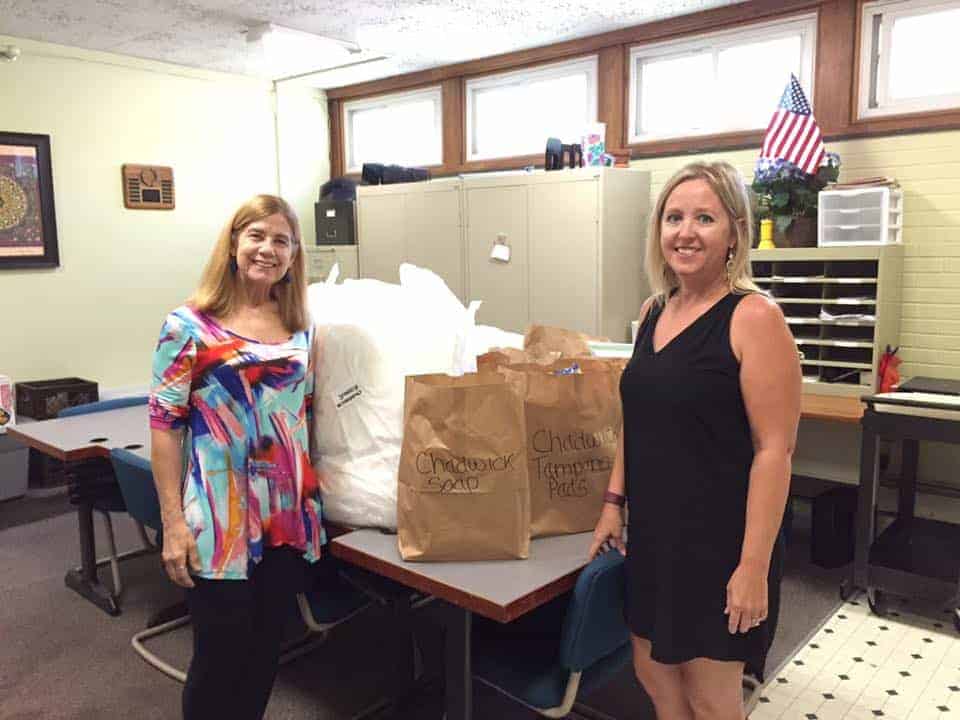Chadwick Residence: Housing as a Human Right
This Syracuse based nonprofit that provides supportive housing and supportive services for women and women with children experiencing homelessness. The right to housing should be guaranteed, says their Executive Director.
Published May 11th, 2021
Jenni Gratien wants to change the image you have of homeless people. “The biggest misconception is that when someone talks about a homeless person, they have that vision in their head of someone that is really dirty and has ripped clothes and is walking around with a grocery cart full of their belongings,” she says. “For the most part that is not what a homeless person looks like.” Gratien argues that this limited view of homelessness misrepresents the situation and stigmatizes people who are facing housing insecurity.
Chadwick Residence offers short-term and long-term housing options as well as an opportunity to work with a case manager and receive life skills training from a range of professionals.
Gratien is the Executive Director of Chadwick Residence, a Syracuse based nonprofit that provides supportive housing and supportive services for women and women with children experiencing homelessness. They offer short-term and long-term housing options as well as an opportunity to work with a case manager and receive life skills training from a range of professionals. “Once or twice a week we have workshops that offer educational opportunities,” says Gratien. “For example, we may have Visions Federal Credit Union come in and do a financial budgeting workshop. We may have someone from Vera House come and talk to the women about abuse.”
Through a grant from The Gifford Foundation, Chadwick Residence was able to upgrade their tech infrastructure in the early days of the pandemic. Like many organizations, the sudden transition to remote work revealed gaps in their IT systems. With the funds, they were able to purchase new digital communications equipment, boost their WIFI connectivity, and acquire new laptops, among other improvements. Case managers could meet virtually with residents, and they saw an increase in attendance at virtual staff and board meetings. Most importantly, they were positioned to continue their work while practicing social distancing. “With the upgrades Chadwick Residence was ultimately able to protect the residents and staff members from the COVID-19 virus spreading throughout the entire facility,” said Gratien.
Gratien and a colleague get ready to process food donations at Chadwick Residence. (Photo taken pre-pandemic.)
Chadwick Residence’s short-term living arrangement is similar to a college dormitory model where residents have their own bedrooms but share other spaces. It is also capped at two years as it is designed to be a transitional environment for women to get back on their feet. Their long-term housing is designed for people who have experienced homelessness and also have a documented disability. Through funding from Chadwick Residence and HUD (US Housing and Urban Development Dept.), these renters are placed in apartments throughout the City of Syracuse. Their rents are then subsidized so that they only have to pay 30% of their income toward housing.
“More than half of our participants are coming from an abusive situation – either domestic violence or some kind of childhood abuse,” says Gratien. This reality flies in the face of the traditional assumption that people become homeless simply because they cannot hold down a job. In many cases, a woman may have to leave her home suddenly to escape violence and not have a place to go. Mental health challenges also play a significant role in contributing to homelessness. An estimated one in five Americans experience mental health challenges, while more than half of these conditions are left untreated.
Gratien invites people to examine their own lives, as well as those of their friends and family, and really reflect on how homelessness might not be as remote a situation as they might imagine. “Things happen in life, and how many people are out there that are one step away from being in that same situation? It can happen to anybody. Sometimes people have this vision that the person made all these choices to get where they are and they deserve to be homeless, but that’s often just not true.” Once you realize that you or someone you care about might be only a paycheck or two away from losing their home or apartment, it becomes easier to empathize with people who are homeless and become more invested in finding community solutions.
Gratien’s years of experience helping place women into stable, permanent housing has taught her that it can be incredibly difficult to find a place that checks all of the boxes: “There’s a huge shortage of decent and affordable housing. If it’s decent it’s not affordable, if it’s affordable it’s not decent.” This reality puts organizations like Chadwick Residence in an extremely difficult position. “What do you do? You want them to have safe, affordable, secure, decent housing and that is a huge issue across the board in Syracuse.” Nonprofits are then put in an impossible position where they are trying to put a roof over the heads of those in need, while also working with a selection of poorly maintained apartments that are often owned by predatory out-of-town landlords.
Looking ahead, Gratien is concerned about the future of housing in Syracuse. She points to factors such as the eviction ban and additional shelter support that has become available due to COVID as creating artificially low homelessness statistics. “It’s just not a true representation of what’s going on,” she says, arguing that many of the people listed as being “housed” are not actually in stable situations. When COVID relief money ends and the eviction ban is lifted at the end of June, what will happen? Gratien hopes that the pressure of this situation will lead to investments in more accessible, dignified, and affordable housing options, as well as a broader sense of compassion and understanding towards people who have nowhere to live. “Nobody should ever be homeless. It should be a human right to have a decent, affordable roof over our head.”



